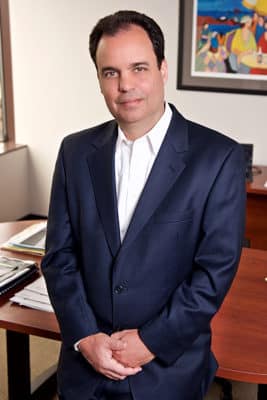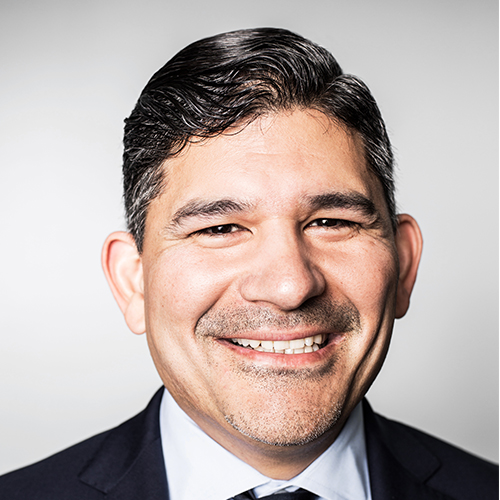|
Getting your Trinity Audio player ready...
|

Growing up as an expat was an experience that helped shape Jorge Celaya’s career. His father left Cuba—and his job as an oil industry engineer—in 1960. Before Celaya was fifteen years old, the family had lived in six different places, five of them outside the United States. The frequent moves made Celaya very adaptable and comfortable with change, qualities that have served him well in his professional life.
After earning an MBA from the University of Texas, Celaya joined a multinational company and then spent the bulk of his career managing company operations and serving as chief financial officer of various public companies. In addition to starting a private equity firm before assuming the role of chief financial officer at Liquidity Services, he has often been often responsible for business transformations and turnarounds of corporate financial functions.
“My background taught me to be flexible and open to taking in new ideas, cultures, and approaches,” Celaya says. “In business, those are things you want to pursue to continually drive improvements and promote growth.”
Many financial professionals stay exclusively focused on accounting priorities and overlook the value they can add in support of operations and business growth. Celaya has an insatiable appetite for developing his own and his team’s overall business acumen, including understanding day-to-day operations and business strategy. This enables him and his team to go beyond the raw numbers to what they indicate about the business and its future.
To Celaya, focusing solely on the accounting has never been enough. “In every company, I want to know how things work,” he says. “I talk to IT specialists and engineers to understand how the specifics of how operations work and how the technology contributes to the business. I’m comfortable owning up to what you don’t know. That makes me more effective in learning, making decisions, and translating what the numbers mean for the business in practical, meaningful ways.”
Change is never easy, but Celaya has found that particular strategies are effective at managing the challenges that come with it. Ongoing communication and transparency are two of the key elements. He believes the more information teams have to help them understand common goals and how their activities contribute to them, the more motivated they are to collaborate and to be open to the changes or processes being introduced.
Celaya facilitates ongoing interactions by regularly speaking with colleagues. It’s not uncommon for him to respond to an email with a phone call or a face-to-face discussion.
“I’m not a sit-at-your-desk kind of guy,” Celaya says. “I’m proactive about reaching out to people, and I don’t hesitate to bring others into the conversation. Their insights teach me things I don’t know and help create cohesive teams in an open team environment where people talk to each other and work more effectively.”
From experience, he knows that engineers and IT professionals enjoy explaining how things work, so he encourages his teams to ask experts direct questions whenever they have the opportunity.
Celaya pays a great deal of attention to striking the right balance of people, processes, and technology, prioritizing them in that order. His first step is to identify people with the right skills and experience in the best organizational design, i.e. those who are willing to learn, willing to expand outside their areas of expertise, and can implement new practices and processes. Once those two elements are in place, they create support for systems.
Liquidity Services is in the process of implementing a new internally developed e-commerce platform that will greatly improve flexibility, scalability, and functionality. It will be integrated with a third-party ERP system that replaces other systems the company has been using.
“I’m one of a handful of executives who regularly monitors the overall project and the teams, ensuring that every aspect meets our business needs and integrates appropriately across the enterprise,” Celaya says. “Because the new systems impact everything everyone does, including our customers, it’s critical that every person communicates with other functions to ensure smooth integration and implementation across the enterprise.”
The new platform integrates commercial activity with back-office functions. The ERP system also enables shared-service centers for improved efficiency, and it supports project accounting for improved business support in decision making.
One of Celaya’s philosophies is that if you’re not making improvements and moving forward, you’re falling behind. To put it into action, he always looks for new solutions to produce new efficiencies, for new opportunities to grow the business, and to learn how the business can compete in new markets. These are what he considers the fun parts of the job.
“Some people try to avoid change,” he says. “My natural inclination in business is to progress, looking for ways to advance. And if ‘the new’ isn’t working as expected, you adapt, shift resources, and move the pieces so you can keep getting better.”
Photo by Carlos Zabala
Grant Thornton LLP (Grant Thornton) is the US member firm of Grant Thornton International Ltd, one of the world’s leading organizations of independent audit, tax, and advisory firms. Grant Thornton has revenues in excess of $1.6 billion and operates 59 offices.

